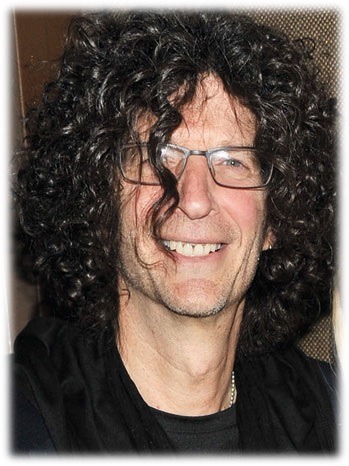 During the heyday of Howard Stern on commercial radio stations across the U.S., I spent a lot of time studying research about the phenomenon of how a controversial morning show impacted the entire brand. From perceptual research to focus groups, we continued to see the same thing:
During the heyday of Howard Stern on commercial radio stations across the U.S., I spent a lot of time studying research about the phenomenon of how a controversial morning show impacted the entire brand. From perceptual research to focus groups, we continued to see the same thing:
Howard was one of those personalities who generated a lot of 1s but also a lot of 5s on those 1-to-5 scales that measure likeability.
You loved him or hated him, but his bipolarity proved to be at the core of strength and popularity. Obviously, many people loved Stern, but many also hated him. And some of those hated him so much they just had to listen.
I frequently tell the story that at WYSP – the first station to “syndicate” Howard via the vision of then-GM Ken Stevens and then-PD Andy Bloom – Howard was not an initial hit.
Many forget that it took several anguishing months for Stern to connect with the always-tough-to-please Philadelphia core. WMMR was as strong a station back then as it is today, and Stern was not an instant success at YSP.
But the numbers came, and during a visit to Philly about a year into Stern’s reign in the market, I had brunch with relatives in town – a first cousin and his wife who at the time were in their early 40s.
They asked me about which local station I was working for, and when I told them it was YSP, they didn’t at first recognize the call letters. But then the light bulb went off inside Barbara’s head, and she said, “Wait – isn’t that the station with that awful person in the morning?”
So, as I was prepared to defend and explain why we chose to go with Howard, she beat me to the punch – she ran down a couple of things he had done that morning, and during the previous few weeks – and how offended she was.
I began to understand the power of emotionally moving listeners – one way or the other – and why that worked so well for Stern, and ultimately, so many others who have followed his path. From Limbaugh to Rob, Arnie & Dawn to Mancow to Drew & Mike, shows, teams, and hosts that generate passion and emotion – both positive and negative – are often the big winners.
I was reminded of this at a couple of odd intersections earlier this month. Steve Jones, author of the book Brand Like A Rock Star, was a featured speaker at the Nielsen Client Conference. While running down his Top 10 list of ways that music idols can teach us about branding, Steve pointed that great brands are passionately loved, but also just as passionately hated.
And even an amazing 10 share of listening in the ratings means that 90% of the audience isn’t listening at all. And of them, many may despise you and your brand. But that’s the power of generating a visceral reaction, whether we’re talking Howard Stern or the band KISS.
 The other touch point of bipolar reactions, strangely enough, was in a New York Times magazine interview with Claire Danes, star of Homeland. If you’ve never seen the show, Danes plays Carrie Mathison, a truly bipolar CIA agent. The show is very addicting, suspenseful, and was operating a very high level as it wrapped up its third season on Showtime a week or so ago.
The other touch point of bipolar reactions, strangely enough, was in a New York Times magazine interview with Claire Danes, star of Homeland. If you’ve never seen the show, Danes plays Carrie Mathison, a truly bipolar CIA agent. The show is very addicting, suspenseful, and was operating a very high level as it wrapped up its third season on Showtime a week or so ago.
Danes was asked whether online fan reaction impacts shows and their popularity, and she responded this way:
“I don’t think that the immediate chatter online is all that relevant to the health and success of the show. More people are watching than ever. It’s O.K. if there are disgruntled voices out there. That’s the aim, to engage the audience – not to get perfect marks at every turn.”
That’s not to say there’s an inherent problem with “nice guy” shows and DJs, because that’s how personalities like Ryan Seacrest, Delilah, and many others have made a pretty nice living.
But in this time of infinite voices, channels, and choices, a show that moves the audiences, that gets them talking, that pisses them off, but enchants them at the same time, is what it’s all about.
Those 5-scores are always great to see, but we love it when they’re accompanied by a fair share of 1s, too.
Love me, hate me, but listen to me.
- Like A Pair Of Old Jeans - April 2, 2025
- What’s Fair Is Fair - April 1, 2025
- What’s On Your Bucket List? - March 31, 2025




I’d love to hear you discuss the “regionality” of Stern’s audience (something that continues in his Sirius/XM guise.) He was/is a primarily coastal phenom, a real and repeated failure in the middle of the country (and not for lack of trying.) He never reached a “1” on your 1-5 scale; people just didn’t care for or about him off the coasts.
Well, he did very well in Cleveland, not as impactful in Minneapolis (to be sure) or even Detroit (the second time around). But still, LWD, an incredibly successful syndicated show that never even tried to acknowledge local markets. Thanks for the comment.